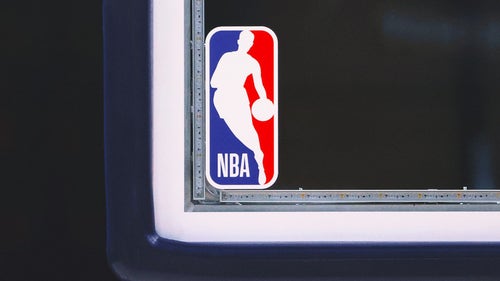US players learning differences between Olympic hoops, NBA
TOKYO (AP) — The U.S. men’s basketball team was about to start playing its final warm-up for the Tokyo Olympics a few days ago in Las Vegas, and Spain’s Ricky Rubio found himself in a pregame conversation with American guard Zach LaVine.
Rubio has well over a decade of experience in the international game. LaVine has a few weeks.
“This is different,” LaVine told Rubio.
Rubio nodded. LaVine wasn’t wrong.
The rims are 10 feet high and much of the court looks the same as what American NBA players are used to, but the nuances of the international game — the Olympic game — are much different. Quarters are 10 minutes long instead of 12, games move more quickly with fewer time-outs, the 3-point line is closer, the level of physicality is higher and much of what happens on defense under FIBA rules simply doesn’t fly in the NBA.
“I mean, it’s basketball, but it’s a little different,” Rubio said. “That being said, it’s not just the rules, it’s the role they have on the team as well. Maybe you have one or two shots in the first quarter when you usually have like five or six in the first five minutes of the game, and you have to be ready for that. There’s a lot of handchecks; it’s called different in NBA than in FIBA. There is a lot of physicality. I will say, it’s played different.”
And as U.S. coach Gregg Popovich has pointed out many times — first when he coached the Americans in the Basketball World Cup two years ago and now in the lead-up to the Tokyo Games — that many of the teams in the Olympics have been together before and have a familiarity with the different rules.
He’s been preaching about it often with this group, particularly the element of a 40-minute game versus the NBA’s 48-minute variety.
“You can’t have a bad quarter,” Popovich said. “In the NBA, you can do that. But those last eight minutes are really important. Sometimes, that’s where talent takes over, in the last eight minutes. But in a 40-minute game there are many fewer possessions. Your turnovers become more important. ... In a sense, it’s more of an NCAA one-and-done thing than it is being in an NBA playoff and you might have a second game poor but you can come back the third game and the fourth game and so on and so forth.
“It’s a matter of extreme focus, expecting nothing, asking for nothing, and being very, very serious from the get-go.”
Perhaps out of habit, some players on the U.S. team argued for a goaltending call against Nigeria’s Chimezie Metu in the Americans’ first exhibition game in Las Vegas. Kevin Durant was taking a free throw for the U.S., and as his second shot bounced on the rim Metu reached up and knocked it away. That’s goaltending in the NBA, but legal under FIBA rules.
And U.S. forward Keldon Johnson seemed a bit surprised when he picked up his fifth foul in the game against Spain and got told he had fouled out. In the NBA, the sixth foul sends someone to the bench for the rest of the evening; in FIBA, it only takes five.
“As the game goes on, as we continue to go through this process, we’re figuring out the difference between the international game and the game we play,” U.S. guard Damian Lillard said. “There’s been moments where we’re all looking around saying ‘what’s going on?’ We’re learning on the fly.”
Zone defense is a big part of the international game; NBA teams play zone as well, but with the twist that the defensive 3-second rule still applies. That rule isn’t in the FIBA book, so teams can pack the paint for the entirety of a defensive possession if so inclined.
There are other little differences as well, such as how backcourt fouls are whistled and what constitutes a travel.
“Everybody is learning,” Nigeria coach Mike Brown said. “Including me.”
What the Americans are learning is that Rubio was right. The game is the same — just very different.
“I think the different rules are going to be an adjustment,” U.S. forward Jerami Grant said. “But that’s what we’re here working on right now. We’ve got a great group of guys, certainly a talented group of guys and we’re learning pretty fast.”
___
More AP Olympics: https://apnews.com/hub/Olympics and https://twitter.com/AP_Sports




